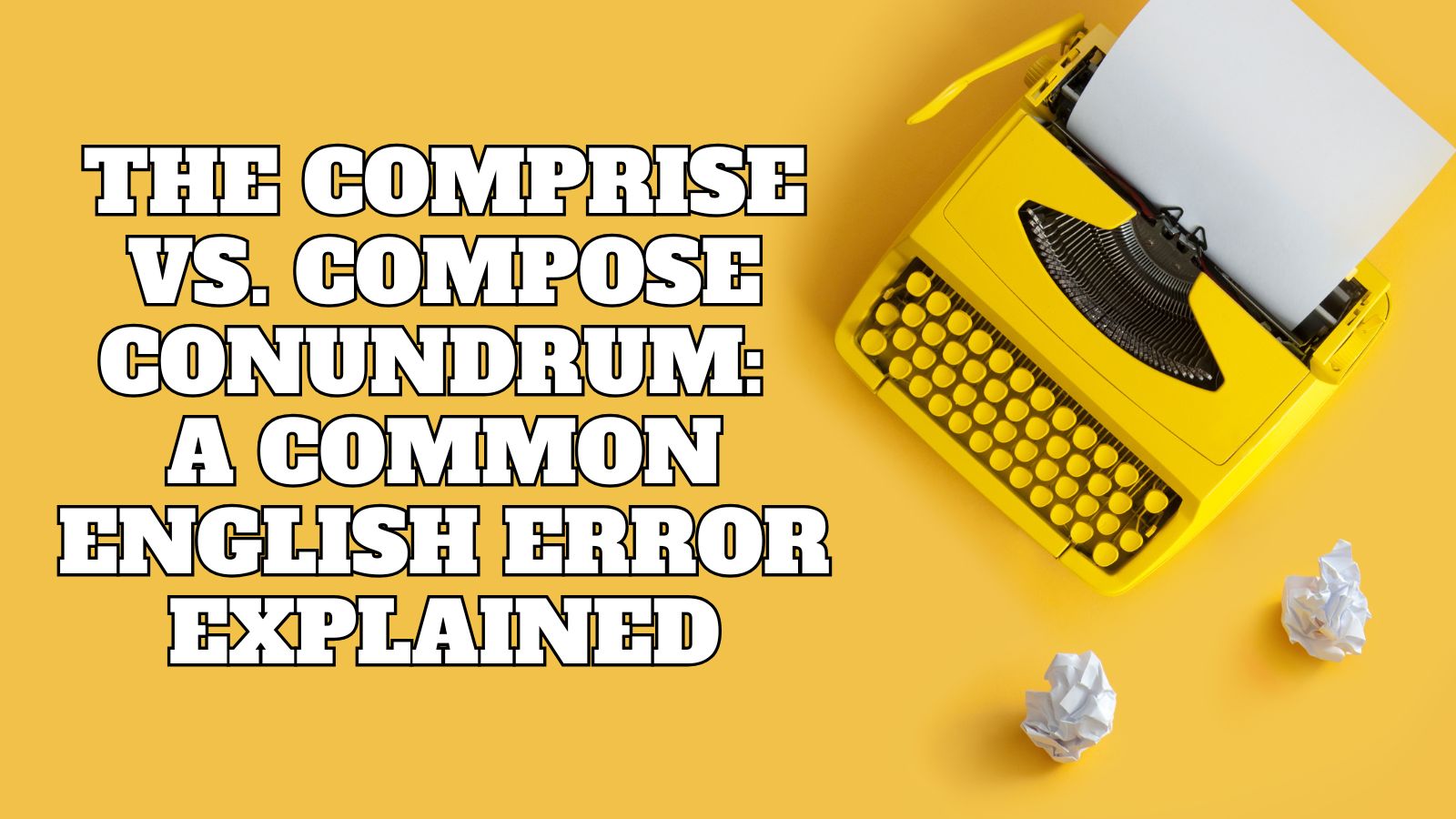The Comprise vs. Compose Conundrum: A Common English Error Explained
Picture this: you’re writing an important email to your boss, and you pause, finger hovering over the keyboard. Should you write “the team comprises ten members” or “the team is comprised of ten members”? This common dilemma has stumped even the most seasoned writers, so let’s unravel this linguistic mystery once and for all.
The Core Difference
Here’s the simple rule:
- “Comprise” means “to contain” or “to consist of”
- “Compose” means “to make up” or “to form”
Think of it this way: the whole comprises the parts, while the parts compose the whole.
Using “Comprise” Correctly
“Comprise” is a direct verb meaning “to contain” or “to include.” The whole comprises the parts. For example:
- The United States comprises 50 states
- The symphony comprises four movements
- Our team comprises six developers
Notice how we don’t need any prepositions? That’s because “comprise” works on its own.
The Common Mistake
Many people write “is comprised of,” but this is technically incorrect. When you need the passive voice, use “composed of” instead:
- ❌ The team is comprised of six members
- ✅ The team is composed of six members
- ✅ The team comprises six members
Using “Compose” Correctly
“Compose” works in the opposite direction: the parts compose the whole. You can use it either actively or passively:
- Six members compose the team
- The team is composed of six members
Real-World Examples
Let’s look at some correct usage in context:
- “The novel comprises three sections, each telling the story from a different perspective.”
- “Five distinct boroughs compose New York City.”
- “The committee is composed of representatives from each department.”
Why It Matters
While “is comprised of” has become increasingly common in casual usage, knowing the correct usage of these terms can:
- Enhance your professional writing
- Demonstrate attention to detail
- Help you communicate more precisely
- Give you an edge in formal writing situations
The Bottom Line
When in doubt, remember:
- If you’re describing what makes up the whole, use “compose” or “is composed of”
- If you’re listing what the whole contains, use “comprise”
- If you’re unsure, restructure your sentence to avoid both words!
Language evolves, and while some style guides now accept “is comprised of,” knowing the traditional distinction will serve you well in formal writing. The safest approach? Stick with “comprises” or “is composed of” and you’ll never go wrong.
Remember: The whole comprises the parts; the parts compose the whole.
Etymology
COMPRISE:
- Origin: From Old French “comprendre” (to include, comprehend)
- Latin root: “comprehendere” meaning “to grasp together, to include”
- com- (together) + prehendere (to grasp, seize)
- First appeared in English: Late 15th century
- Original meaning: “to include” or “to contain wholly”
- The original sense was about embracing or encompassing something completely
COMPOSE:
- Origin: From Old French “composer”
- Latin roots: com- (together) + pausare (to place, put, halt)
- First appeared in English: Late 14th century
- Original meaning: “to put together, arrange”
- Interesting evolution:
- Initially meant “to place together” or “to form by putting together”
- Later developed artistic connotations (composing music, composing writing)
- The meaning “to settle, calm” (as in “compose yourself”) emerged later
What’s fascinating is how these etymological roots reflect their proper modern usage:
- “Comprise” comes from the idea of grasping or holding together, which aligns with its meaning of containing or including
- “Compose” comes from putting things together, which explains why we use it to describe parts forming a whole
This etymology actually helps explain why “is comprised of” is considered incorrect by purists – the original meaning was about containing or grasping together, not being made up of something.
Would you like me to elaborate on any particular aspect of these words’ historical development?
Here are 20 sentences that need correction regarding comprise/compose usage, with answers at the bottom:
- The book is comprised of twelve chapters.
- The class is comprised of thirty students.
- Four elements are comprising this mixture.
- The galaxy comprises of billions of stars.
- The council is comprised of seven members.
- The sandwich is comprised of three layers.
- Five boroughs are comprising New York City.
- The portfolio comprises of diverse investments.
- The orchestra is comprised of fifty musicians.
- These ingredients are comprising the recipe.
- The movie is comprised of three acts.
- The molecule comprises of two atoms.
- Seven continents are comprising the Earth.
- The committee is comprised of experts.
- The package comprises of multiple items.
- Four quarters are comprising the fiscal year.
- The experiment is comprised of three phases.
- The collection comprises of rare artifacts.
- Six players are comprising each team.
- The database is comprised of customer records.
- 100 Screenwriting Ideas to Get You Writing - January 20, 2026
- 100 Winter Storm Writing Prompts - January 17, 2026
- 100 Haunted House Story Starters: Craft Your Scariest Tale Yet - January 10, 2026




